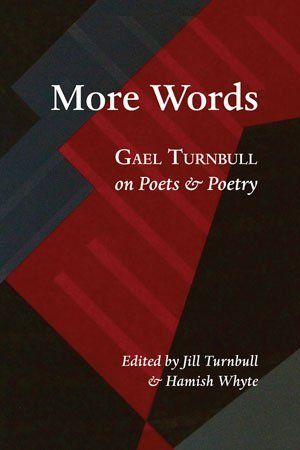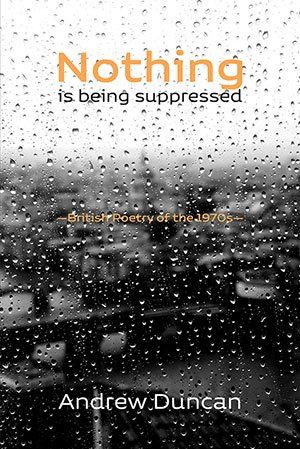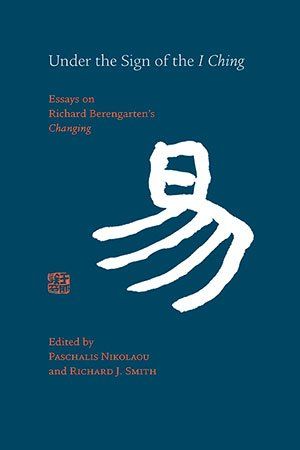Essays, Interviews & Memoirs
Art Beck A Treacherous Art — translating poetry
Published 2023. Paperback, 178pp, 9 x 6 ins, £14.95 / $23
ISBN 9781848618978 [Download a sample PDF from this book here.]
These pieces are selected from a steady series of essays and reviews I found myself publishing in the late aughts of the still early century. It was a period in which I was translating poetry, not so much as a specific translation “project,” but as an extension of writing poetry. And as an interactive means of reading poetry.
My impetus for writing prose on translated poetry was explorative, not didactic. During that period, I eventually published three translation collections from three very different cultural periods. In 2012, the 91 extant poems of Luxorius, a sixth century C.E. Latin epigramist, writing in Vandal-occupied North Africa at the dawn of the Dark Ages. This segued into a multi-year delve into Martial, and culminated in a good-sized, 2018 selection. And, concurrently, beginning with a chapbook in the late ’70s, I’d been translating Rilke, finally publishing an extensive selection in 2020.
One can happily and productively write poetry without too much theorizing. In fact, at least in our era’s thinking, the best poems spring from need not theory. Even successful formalists utilize form as vehicle, not inspiration. But when you find yourself wanting to translate poetry into poetry, you can also find yourself in an anarchic unmapped landscape, navigating a cliff’s edge in the fog between languages. When translating established classics, “do no harm” isn’t a concern. But “don’t do anything stupid” is a prime directive. All other rules spring from that. The “translation police” exist, but they’re not so much to be feared as one’s internal gestapo. So, many of these pieces served as negotiations with myself for permission. Some make repeat visits to the poets above for multiple looks. But from somewhere over the years, Catullus also kept showing up. I welcomed and re-welcomed those visits. (Art Beck)
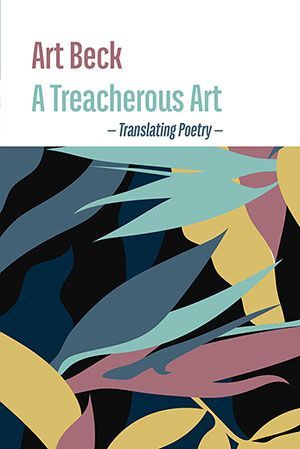
Richard Berengarten Balkan Spaces — essays
This first volume of essays and prose-pieces by Richard Berengarten reflects his sustained involvement in the Balkans over a period of more than thirty-five years. By focusing on his experience of Yugoslavia before, during and after that country’s dissolution, Balkan Spaces locates, tracks and celebrates aspects of history, folk tradition, literary culture, educational practice, politics and poetry, while also including affectionate memoirs of many friends, most of them writers. Through intimate explorations and careful research, Berengarten discovers some of the patternings, varieties and bounties of the Balkan and Yugoslav heritage. While his keen eye questions and explores what William Blake called the “minute particulars”, his overall vision is panoramic and multi-faceted. This book embodies a commitment to the values and varieties of Balkan civilisation, to the poetic imagination, and to the poet’s vocation and craft.

Ian Brinton (ed.) For the Future — Poems & Essays in Honour of J.H. Prynne on His 80th Birthday
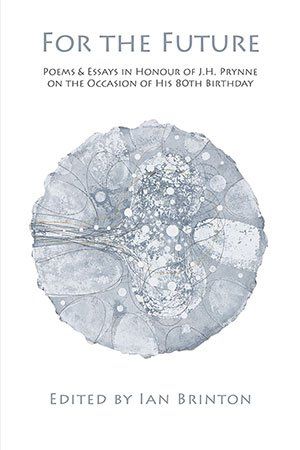
Ian Brinton (ed.) A Manner of Utterance — The Poetry of J.H. Prynne
Published 2009. Paperback, 188pp, 9x6ins [Download the introduction to this book here .]
ISBN 9781848610422 (hardcover) £30.00 / $45
ISBN 9781848610439 (paperback) £14.95 / $23
A Manner of Utterance offers a collection of responses to J.H. Prynne's poetry by his readers: not merely academics, but poets, composers, teachers and a painter (Ian Friend, one of whose works is featured on the cover). The contributors include Ian Brinton (also editor of the volume), David Caddy, Ian Friend, Richard Humphreys, Li Zhi-min, Rod Mengham, Keston Sutherland, John Douglas Templeton and Erik Ulman.
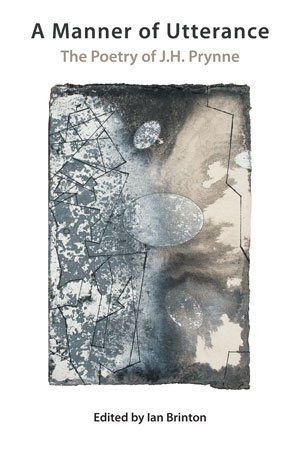
Ian Brinton (ed.) 'An intuition of the particular': some essays on the poetry of Peter Hughes
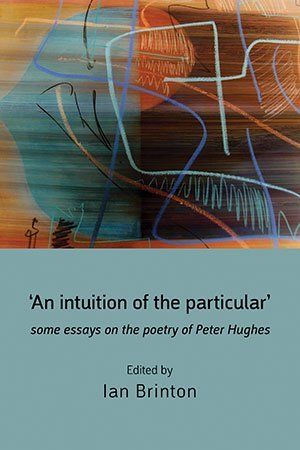
Andy Brown (ed.) "The Writing Occurs as Song": a Kelvin Corcoran Reader
Published 2014. Paperback, 262pp, 9x6ins, £14.95 / $23
ISBN 9781848613201 [Download a sample PDF from this book here .]
This book offers a critical overview of the work of the British poet Kelvin Corcoran who, over nearly 30 years, has established a reputation as one of the most significant innovative British lyric poets; 'a giant of the middle generation' as Andrew Duncan has described him, placed between the radical poetics of the '60s and '70s and subsequent generations. Essays by Martin Anderson, Zoë Brigley Thompson, Andy Brown, Ian Davidson, John Hall, Lee Harwood, David Herd, Luke Kennard, Katherine Peddie, Peter Riley, Jos Smith, Simon Smith, Alicia Stubbersfield, Scott Thurston, plus some recent poetry by Kelvin Corcoran.
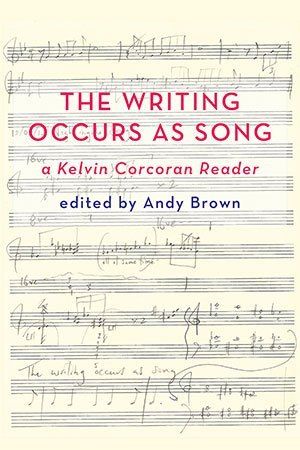
James Byrne & Christopher Madden (eds.) The Robert Sheppard Companion
Published 2019. Paperback, 296pp, 9 x 6ins, £17.95 / $25
ISBN 9781848616257 [Download a sample PDF from this book
here.]
A substantial review of Robert Sheppard's career to date, this volume includes writings and appreciations by Joanne Ashcroft, Charles Bernstein, James Byrne, Ailsa Cox, Nikolai Duffy, Patricia Farrell, Allen Fisher, Robert Hampson, Alison Mark, Christopher Madden, Adam Hampton, Tom Jenks, Mark Scroggins, Zoë Skoulding, Scott Thurston; plus a roundtable featuring Gilbert Adair, Adrian Clarke, Alan Halsey, Chris McCabe, Geraldine Monk and Sandeep Parmar.
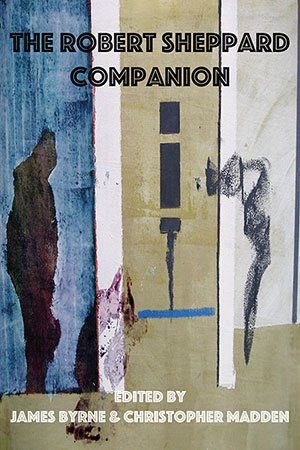
David Caddy So Here We Are
Published 2012. Paperback, 156pp, 9x6ins, £12.95 / $20
ISBN 9781848610910 [Download a sample PDF from this book here .]
In April 2007, when Didi Menendez, publishing director of MiPO publications and miPOradio, invited me to present a monthly series of literary talks, my remit was to be personal, direct and contemporary in the manner of Alistair Cooke's Letters From America . So Here We Are: Poetic Letters from England began somewhat gingerly on 7 May 2007, with an essay on aspects of my poetic background, and picked up pace from there. I attempted to give some background to the contemporary poetry scene in England as well as responding to the deaths of poets, such as Bill Griffiths and Andrew Crozier. The talks were written quickly and intended as intelligent introductions rather than definitive statements. Their aim was to stimulate the reader / listener and prompt further reading and discussion.
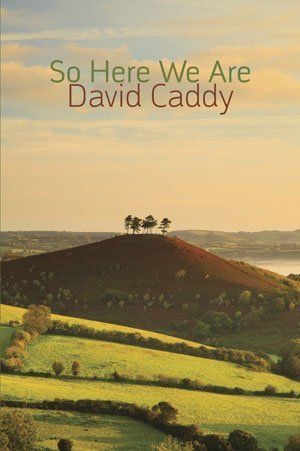
Claire Crowther Sense and Nonsense: Essays and Interviews
Edited by Carrie Etter
Published 2024. Paperback, 142pp, 9 x 6ins, £14.95 / $23
ISBN 9781848619470
"The thike, Claire Crowther’s imaginary creation, ‘broods, plays, and is “othered” by an uncaring society’. The poetry that appeals to Crowther, and for which she acts as such an eloquent advocate, often does the same. The essays of
Sense and Nonsense are passionate acts of elective affinity, precise and careful homages to kindred spirits from Lorine Niedecker and Veronica Forrest-Thomson to Denise Riley and R. F. Langley. Carrie Etter’s forensic interviews send us back to Crowther’s own poetry, and remind us that she is entirely at ease in such company. Generous and gladsome, a gift of a book." — David Wheatley
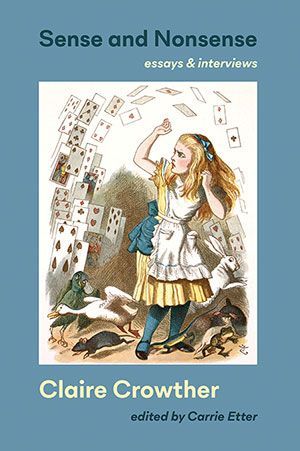
Andrew Crozier 'Free Verse' as Formal Restraint
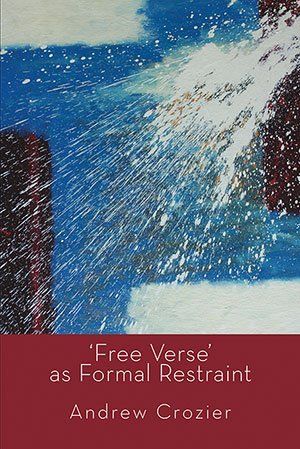
Andrew Crozier Thrills and Frills — Selected Prose of Andrew Crozier
Edited by Ian Brinton
Published 2013. Paperback, 214pp, 9x6ins, £14.95 / $23
ISBN 9781848613010 [Download a sample PDF from this book here .]
Almost without exception the prose of Andrew Crozier, reviews and articles centred upon the close reading of poetry including fearless debate about the importance of some figures who have either been overlooked by the establishment or given little more than a cursory nod of acknowledgement, has been out of print for far too long. The work, often published in journals or as contributory chapters to other books, has never before been collected together and this seems astonishing. —from Ian Brinton's introduction to this volume.
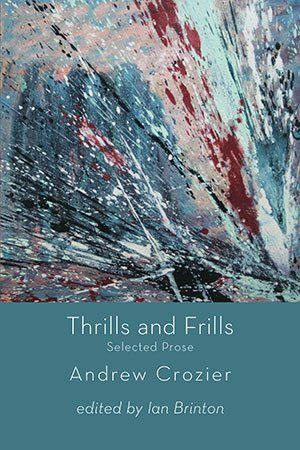
Edward Dorn Two Interviews
Edited by Gavin Selerie and Justin Katko
Published 2013. Paperback, 102pp, 8.5x5.5ins, £12.95 / $20
ISBN 9781848612785 [Download a sample PDF from this book here. ]
Edward Dorn's Two Interviews brings together two largely unseen interviews from 1971 and 1981, conducted in Vancouver and London, with Tom McGauley, Brian Fawcett, John Scoggan, Stan Persky, J.H. Prynne, Ralph Maud, and Gavin Selerie. Published alongside the interviews are uncollected extracts from Dorn's Day & Night Report (1971), extracts from his unpublished prose work Juneau in June (1981), and three uncollected poems from 1981. Along with Justin Katko's preface to the book, which focuses on Dorn and Prynne's 1971 trip to Vancouver, and an extended introduction to the 1981 interview by Gavin Selerie, which deals with Dorn's geographical and linguistic alignments, particularly those relating to his first period in England, this book includes unpublished photographs, and a bibliography of Dorn interviews.

Nikolai Duffy Relative Strangeness: Reading Rosmarie Waldrop
Published 2013. Paperback, 190pp, 9x6ins, £14.95 / $23
ISBN 9781848612778 [Download a sample PDF from this book here .]
"A sequence of fragments seems the most appropriate form for a work of this kind, introductory, surveying, essentially personal, marked, as with all things, by my own reading and preoccupations. 'Maybe,' Waldrop writes, 'the essence of the fragment is that it cuts out explanation, an essential act of poetry.' It constitutes, Waldrop continues, a 'lessening of distinctness, of "identity."' I do not claim to be comprehensive. Nor do I mean to speak for Waldrop or her work but simply to speak about some of its aspects, its various senses of poetics, the shifting relationships between theory and practice, to draw out a number of examples and to trace certain lines of thinking, ways of thinking." —Nikolai Duffy
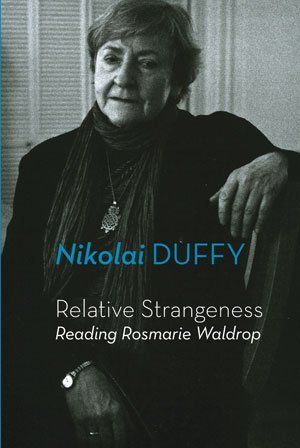
Andrew Duncan The Council of Heresy — A primer of poetry in a balkanised terrain
Published 2009. Paperback, 314pp, 9x6ins, £16.95 / $27
ISBN 9781848610071 [Download a sample PDF from this book here .]
Andrew Duncan's latest study of contemporary British poetry offers studies of some thirteen poets, together with a number of general essays giving an overview of events and trends in British poetry over the past thirty to forty years. Some of the names will surprise, others will be expected. The juxtapositions of ideas, and of names, will disturb those who are more comfortable with trench warfare than with dialogue, and Duncan's startling aperçus will leave even the most well-read student of poetry wondering.
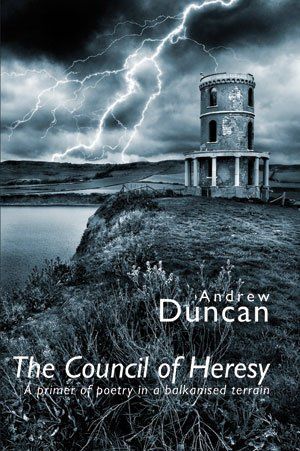
Andrew Duncan The Long 1950s
Published 2012. Paperback, 308pp, 9x6ins, £16.95 / $25
ISBN 9781848611375 [Download a PDF containing the introduction to this book here .]
"The story of poetry since 1960 is largely of people rebelling against what was there in the 1950s. But another story is about poets who didn't revolt against that, but went on with it—developing it organically. The present work deals with a complex of issues, but started with the double twist, that two 50s poets, Logue and Hill, have dominated the artistic scene over the last ten years (or, say, 1996 to 2006) and that the death of the main '50s style has liberated the official English poetry, with the decease of certain inhibitions which were glued together and brewed up to weapons grade quality back in the 1950s." —Andrew Duncan
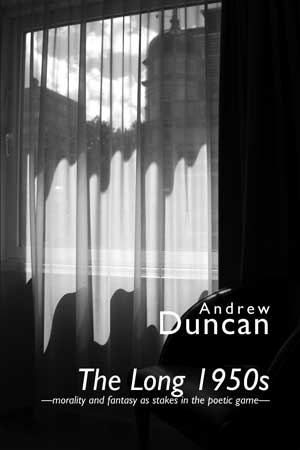
Andrew Duncan A Poetry Boom 1990-2010
Published 2015. Paperback, 324pp, 9 x 6ins, £16.95 / $25
ISBN 9781848614239 [Download a PDF of the introduction to this book here .]
The third of Andrew Duncan’s surveys of 20th-century British poetry from Shearsman Books—there are also volumes from Salt and from Liverpool University Press, two of which are republished here in revsied form in 2016 (see below)—and as idiosyncratic and as fascinating as the previous volumes. This volumes covers the most recent period in our poetry, and pays special attention to recent anthologies as maps of the terrain, recent critical surveys of the secne, and to the work of a range of poets, from Claire Pollard to Emily Critchley, and from Pauline Stainer to B. Catling.
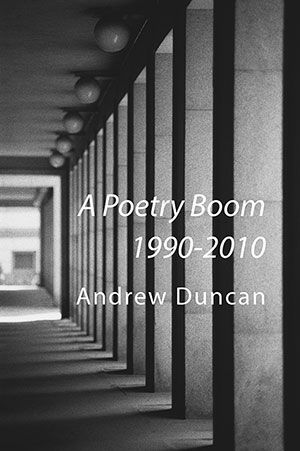
Andrew Duncan The Failure of Conservatism in Modern British Poetry (2nd, Revised Edition)
Published 2016. Paperback, 364pp, 9 x 6ins, £16.95 / $25
ISBN 9781848614987 [Download a sample PDF from this book here .]
Failure starts from the key misrepresentation of orthodox poetry criticism, that the conservative is also the new, and sets out to define the whole British complex of refusing to innovate. In the attempt to set up publicly accountable criteria for what counts as new, the book goes through the whole period from the 1950s to the mid-1990s, identifying what the stylistic innovations were at each point.
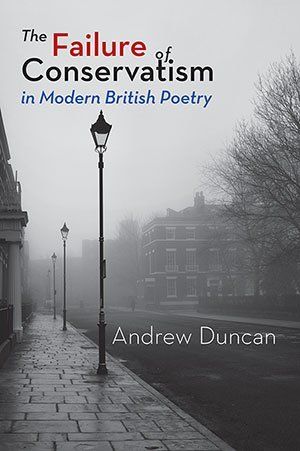
Andrew Duncan Centre and Periphery in Modern British Poetry (2nd, Revised Edition)
Published 2016. Paperback, 318pp, 9 x 6ins, £16.95 / $25
ISBN 9781848614994 [Download a sample PDF from this book here.]
Does what is true depend on where you are? Or, can we speak of a British culture which varies gradually over the 600 miles from one end of the island to the other, with currents gradually mutating and turning into their opposites as they cross such a distance? The unbalanced local energies which gave birth to the central horror of possessive individualism, the Empire, and the State as war-machine, do not sound their triumphalist self-praises without conjuring up a reaction in favour of collective values, pacifism, equity, and the languages of the periphery. Poetry has to offer more than the illusion of being in the few rooms where a metropolitan elite solemnly engages in the circularity of authentication. A polemic tour of Scotland, Wales, and the North of England exposes the possibility that the finest poets of the last 50 years have lived in the outlands, not networking and neglecting to acquire linguistic signs of status. We contemplate the sublime through the works of Sorley Maclean, Glyn Jones, Colin Simms, and Michael Haslam. But a second look at poetry in the South jettisons the shallow tricks favoured by High Street cultural managers to reveal a hidden stratum of intellectually sophisticated poets, even in Babylon.
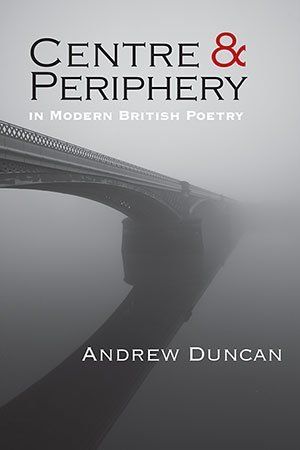
Andrew Duncan Fulfilling the Silent Rules: Inside and Outside in Modern British Poetry 1960-1997
Published 2018. Paperback, 328pp, 9 x 6ins, £16.95 / $25
ISBN 9781848616097 [Download a sample PDF from this book here.]
This is the missing volume in Andrew Duncan’s compendious survey of British poetry in the late 20th and early 21st centuries. An overview of trends during a period of more than 30 years, and a consideration of some individual poets whom Duncan feels deserve greater attention.
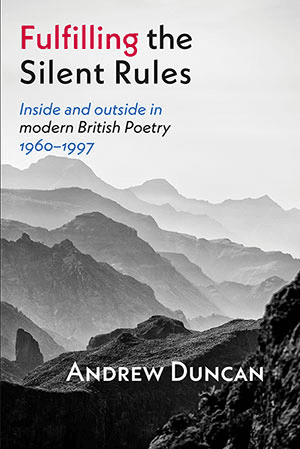
Andrew Duncan Nothing is being suppressed
Published 2022. Paperback, 328pp, 9 x 6ins, £16.95 / $25
ISBN 9781848617490 [Download a sample PDF from this book here .]
"There are several reasons for writing about the Seventies at this point. One is a reading of a recent collection of memories of the decade by participants. My impression was that they couldn’t remember the period – too much time had gone by. They had lost all sense of differentiation and were writing about 1975 as if it was 2015. It is also possible that any attitudes of the previous time which didn’t chime with current positions were being written out, consciously or unconsciously. The extent of the mismatch is of great importance, I think. This suggested that there was a real problem with memory, justifying an account based on contemporary documents. The other problem with memory is that we are living in a splinter dictatorship, a cultural phase where the forces of convergence have stacked arms and opinions are split up into small groups. How can there be a collective memory when there is no single point on which all factions agree? so how can I record collective memory? in what sense is any statement about poetry true? But this argues even more for putting facts down and increasing the area free from malicious invention. We need to think about the divergence as a phenomenon in itself, a kind of cultural gravity that guides all the watercourses. The splintering allows local freedom at most locations – what it does not allow is unifying literary opinion." — Andrew Duncan
Andrew Duncan Beautiful Feelings of Sensitive People — Screen grabs of British Poetry in the 21st C.
Published 2024. Paperback, 336pp, 9 x 6ins, £19.95 / $28
ISBN 9781848619418
The very idea of beautiful feelings makes people laugh, but surely we prefer beautiful feelings to other feelings and sensitive poets to insensitive ones. Few poets proclaim their insensitivity. All the same the phrase points to a possible lack of balance. If the focal point is sensitivity then that might restrict the world of the poem to a small zone close to the poet’s skin, with everything collective, objective, political, abstract, technical, etc., disappearing from view. Even if we accept that poetry is now subjective and egocentric, we can ask if this is an ideology, and look for external forces supporting it, for the currents of poetry which breach its rules, and for historical moments which closed off an exit into other possibilities.
The main feature of the 21st C scene is the great number of poets at work. This is a motive for writing about as many poets as possible, eighty in this case. They are only partly hidden by the details we don’t know. The field may have no overall shape but its local fabric looks like a rich differentiation into linguistic micro-climates, brought about by the sheer number of people and their interest in fine distinctions. If we stroll through enough of the new poets, we may find that sensitivity and the need to be original have shaped a landscape of diversity and achievement which excels our capacity to take it in. This is a park designed for collectors of exotic and finely wrought artistic sensations. Where realms of talent are hidden behind realms of talent, an expedition can last for years.
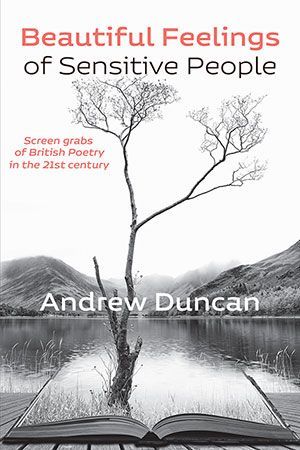
Allen Fisher Marvels of Lambeth
Edited by Andrew Duncan
Published 2013. Paperback, 214pp, 9x6ins, £14.95 / $23
ISBN 9781848612730 [Download a sample PDF from this book here .]
Andrew Duncan says of this book:
"The first interview here with Allen Fisher dates from 1973. I took the decision to collect old interviews rather than make an all-new book. I am fascinated by the idea of a very long base line, records of one person's views over 30 years, change as part of the object recorded. Drawing on the creative input of Eric Mottram, Adrian Clarke, and Victoria Sheppard (among others) made the book more robust and embracing."
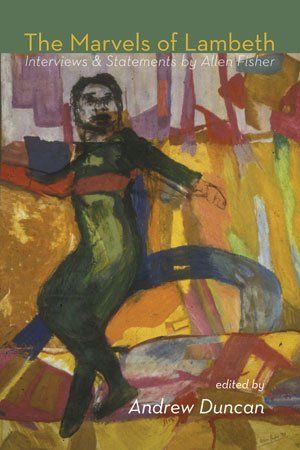
Roy Fisher Interviews through Time (2nd Edition)
Edited by Tony Frazer
2nd, expanded edition. Published 2013. Paperback, 144pp, 9x6ins, £12.95 / $20
ISBN 9781848612983 [Download a sample PDF from this book here .]
Excerpts from several interviews conducted throughout the author's career and spliced together to form a coherent narrative of his development and his aesthetic. The book closes with two full-length interviews, conducted by Peter Robinson and John Kerrigan.
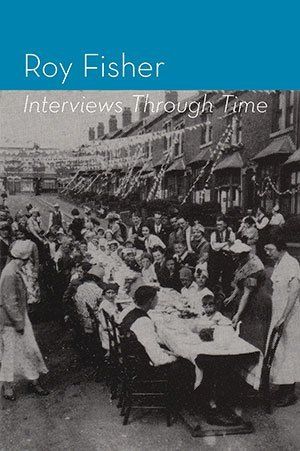
Roy Fisher An Easily Bewildered Child: Occasional Prose 1963–2013
Edited by Peter Robinson
Published 2014. Paperback, 198pp, 9x6ins, £14.95 / $23
ISBN 9781848613003 [Download a sample PDF from this book here .]
An Easily Bewildered Child : Occasional Prose 1963–2013 brings together all his rare autobiographical sketches, the memoirs of his life as a jazz pianist, his tributes to musicians, writers, and painters of various kinds, a number of his book reviews, and comments on classic forebears such as John Cowper Powys, Ezra Pound, the Black Mountain poets, and Basil Bunting. All of these writings, as Fisher notes, ‘owe their origins to commissions, suggestions or various forms of pressure from friends’.
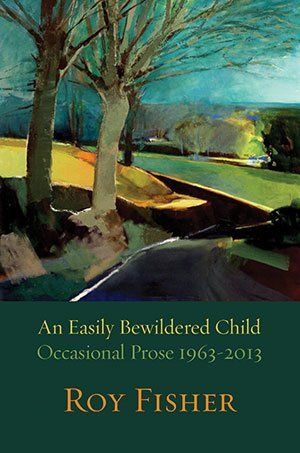
Veronica Forrest-Thomson Poetic Artifice
Edited & introduced by Gareth Farmer
Published 2016. Paperback, 232pp, 9 x 6ins, £16.95. [Not for sale outside the U.K. and Ireland]
ISBN 9781848614451 [Download a sample PDF from this book here .]
First published posthumously in 1978 by Manchester University Press, this volume turned sharply against critics of the previous generation, notably William Empson, and against emergent strains of historicism. The book is an exhaustive (and sometimes exhausting) defence of “all the rhythmic, phonetic, verbal, and logical devices which make poetry different from prose.” According to the author, such devices are responsible for poetry’s most significant effect—not pleasure or ornament or some kind of special expressivity, but the production of “alternative imaginary orders.”
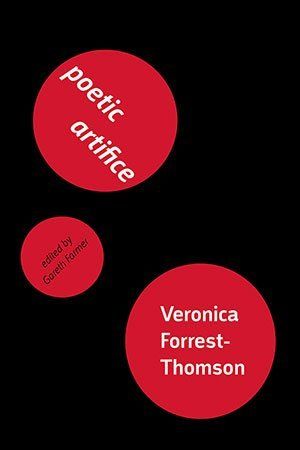
Bill Freind (ed.)Scubadivers and Chrysanthemums — Essays on the Poetry of Araki Yasusada
Published 2012. Paperback, 339pp, 9x6ins, £19.95 / $30
ISBN 9781848611849 [Download a sample PDF from this book here .]
Araki Yasusada, allegedly a survivor of the atomic bombing of Hiroshima, had his work published posthumously and in translation in the mid-1990s. The work was widely praised and seemed to fuse traditional Japanese forms and themes with more innovative North American techniques and a sprinkling of French critical theory. However, Yasusada was an invention, and while no one claimed responsibility for the work, most readers agree that Kent Johnson was the creator, although Johnson insists the actual author is Tosa Motokiyu, the pseudonym for an unnamed writer who is now dead.
This book considers all aspects of the Yasusada phenomenon.

Carol Guess My Father in Water
Published 2011. Paperback, 90pp, 8.5x5.5ins, £10.95 / $18
ISBN 9781848611856 [Download a sample PDF from this book here .]
"My father hovers in the aperture of a glistening window, suicide botched by his mother's ghost. Numbers from his slide rule pause on the sill, fallen by chance into a brilliant formula."
This interlinked collection of lyric essays documents Carol Guess's relationship to her father, a brilliant scientist whose intensity and eccentricity shaped family life in humorous and often lonely ways. In musical prose, writing as a poet, teacher, and queer activist, Guess describes a life lived in service to language. At once accessible and enigmatic, funny and somber, My Father In Water is a haunting examination of the impact of family history on one artist's journey.
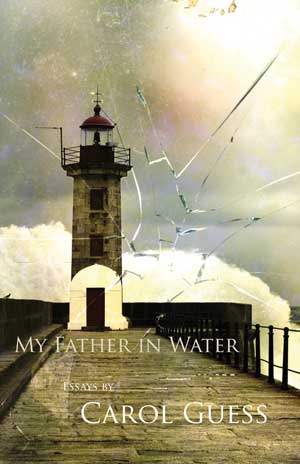
John Hall Essays on Performance Writing, Poetics and Poetry, Vol. 1: On Performance Writing, with pedagogical sketches
Published 2013. Paperback, 252pp, 9x6ins, £16.95 / $25
ISBN 9781848613171 [Download a sample PDF from this book here .]
In 1993, say, the term Performance Writing, if used at all, suggested simply writing for performance. By 2011, when the author of this collection became the first Professor of Performance Writing, it had attained a much wider — indeed international — currency in discussions of contemporary writing, and had entered the curriculum of a range of courses well beyond its intense first conceptual and pedagogic development at the adventurous Dartington College of Arts. The task — and indeed the task of many of these essays — had been to fill out the terms for an approach to writing that looked beyond and beside literature for its sources, references and material practices. These other frames included: the rapid changes taking place within the technologies for producing, circulating and receiving text; a 'turn to writing' within other cultural practices, especially perhaps its integral presence within visual and sonic culture; the increasing textuality of the shared environment (words in public places, for example); and finally, philosophical preoccupations with the idea of performativity and its entailment with language.
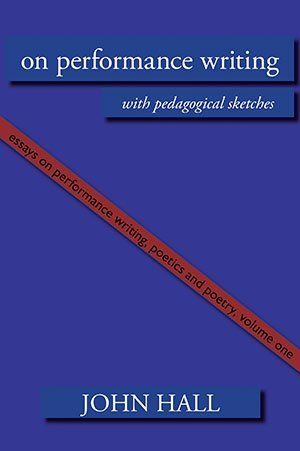
John Hall: Essays on Performance Writing, Poetics and Poetry, Vol. 2: Writings towards Writing and Reading
Published 2013. Paperback, 278pp, 9x6ins, £16.95 / $25
ISBN 9781848613188 [Download a sample PDF from this book here .]
This companion volume to On Performance Writing , Poetics and Poetry brings together most of the essays—taking a deliberately broad view of that term so as to include, for example, two single-page visual essays and one sonnet — on the reading and writing of poetry by the poet and teacher, John Hall. The collection is in two parts. The first, starting with the often cited 'Writing and Not Writing', takes on, in the spirit of poetics, current issues for the category of poetry, considered both formally and contextually, and with particular interest in reading as a practice in which poems are actions and events rather than capturable things. The longer second part develops these thoughts through readings of specific, mostly contemporary, poems: the poets whose work is read are not intended to represent a proposed new canon. They have all, though, contributed significantly to a growing body of work in recent decades that brings together the social and bodily pleasures (and displeasures) of poetry with the ethical demands of truthfulness. They include Andrea Brady, Kelvin Corcoran, Allen Fisher, Harry Guest, Lee Harwood, Peter Hughes, John James, Nicholas Johnson, R.F. Langley, Karen Mac Cormack, Peter Middleton, Geraldine Monk, Alice Notley, Douglas Oliver, F.T. Prince, J.H. Prynne, John Riley, Peter Riley and John Wieners.
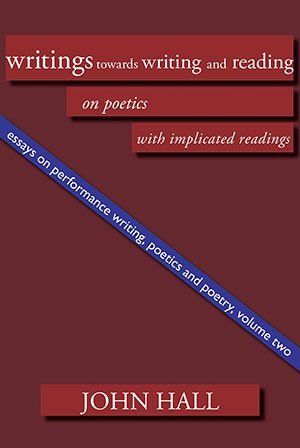
Robert Hampson & Ken Edwards (eds.)CLASP: late-modernist poetry in London in the 1970s
Published 2016. Paperback, 180pp, 9 x 6ins, £14.95 / £23
ISBN 9781848614604 [Download a PDF of the introduction to this book here .]
CLASP is an exercise in collective remembering – with, as Lawrence Upton’s essay suggests, a consciousness of memory work as also a process of selecting, forgetting and inventing. The original plan had been to focus on the 1970s, the decade during which [Ken Edwards and I] had co-edited Alembic with Peter Barry. Some of those we approached felt they could not usefully remember enough of their poetry activities in this period; some were reluctant to return to the past. Also, as the project developed, it became clear that the original plan wouldn’t work: the history did not fit neatly into the limits of the decade. We would have to start earlier to understand the roots of 1970s London poetry, and we would have to stray into the 1980s to see how some of the debates and actions of the 1970s played out. —Robert Hampson, from the Introduction
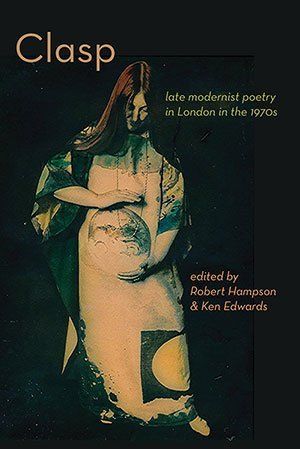
Robert Hampson & cris cheek (eds.) An Allen Fisher Companion
Published 2020. Paperback, 296pp, 9 x 6ins, £17.95 / $25
ISBN 9781848616264 [Download a sample PDF from this book here.]
A long awaited collection of essays which gives a chance for Allen Fisher’s many admirers to study his work in depth with a group of experts. Contributors include Clive Bush, cris cheek, Collum Hazell, Steven Hitchins, Pierre Joris, Paige Mitchell, Will Montgomery, Redell Olsen, William Rowe, Robert Sheppard, Scott Thurston, Shamoon Zamir, plus a transcript of a PhillyTalk involving Karen Mac Cormack & Allen Fisher, Marjorie Welish, Matt Hart & Rob Holloway.
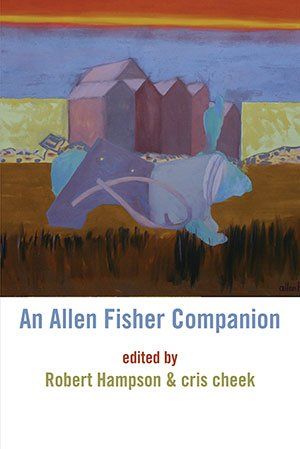
Lee Harwood & Kelvin Corcoran Not the Full Story: Six Interviews with Lee Harwood
Published 2008. Paperback, 116pp, 8.5x5.5ins, Price £12.95 / $20
ISBN 9781848610019 [Download a sample PDF from this book here .]
To accompany Lee Harwood's new Selected Poems, we offer also this book-length collection of interviews with Harwood by his long-time friend and admirer, Kelvin Corcoran — himself also a Shearsman author. An invaluable opportunity to "hear" Harwood talking about poetry and about his own work.
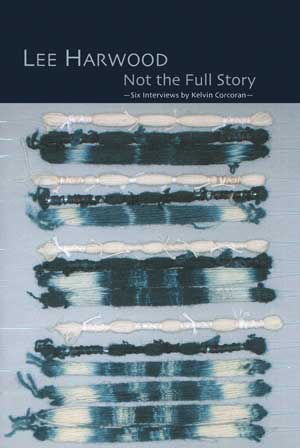
Michael Heller Within the Inscribed — selected prose and conversations
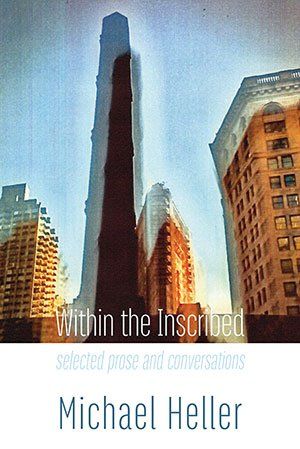
Michael Heller Speaking the Estranged — Essays on the Work of George Oppen
Published 2012. Paperback, 175pp, 9x6ins, £14.95 / $23. 2nd, Expanded Edition
ISBN 9781848612082 [Download a sample PDF from this bookhere.]
This expanded edition of Speaking the Estranged brings together Michael Heller's writings on the work of George Oppen (1908–1984), one of America's most remarkable and distinguished poets. Heller's essays, written over the last twenty years since his ground-breaking book on the Objectivist poets, Conviction's Net of Branches , cover all of Oppen's poetry and how other poets and critics have read him. They touch on all phases of his career, from his early roots in the Objectivist tradition to his abandonment of poetry for political and social activism in the 1930s and his coming back to poetry in the 1950s. Oppen's work won the Pulitzer Prize in 1968, and is considered by many to be one of the most extraordinary and original bodies of poetry in the twentieth century.
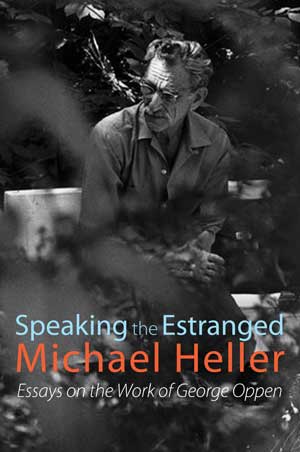
Michael Heller Uncertain Poetries — Selected Essays
Published 2012. Paperback, 257pp, 9x6ins, £16.95 / $25. 2nd Edition
ISBN 9781848612181 [Download a sample PDF from this book here .]
These essays concern the uncertain nature of twentieth century poetry. Dealing with such major figures as Pound, Stevens, Moore, Oppen, Duncan, Niedecker, Lorca, Rilke and Mallarmé and of poets in more contemporary modernist and post-modernist lineages, they examine how these poets articulate, virtually in the same breath, both affirmation and doubt concerning poetry, history and knowledge.
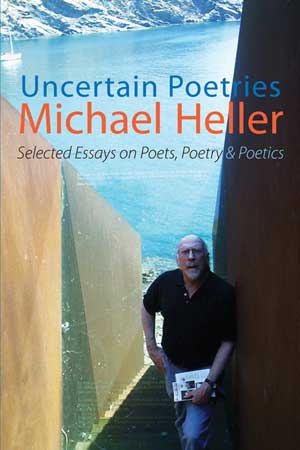
Eric Hoffman Oppen:
A Narrative
Published 2013. Paperback, 240pp, 9x6ins, £16.95.
Not for sale outside the United Kingdom and the Republic of Ireland.
ISBN 9781848612709 [Download a PDF of the book's introduction here.]
"Hoffman's narrative explores in considerable depth Oppen's thinking about his own work, his reasonings and judgments on himself and his contemporaries in life, politics and poetry. Throughout, Hoffman supplies a rich contextual background to the Oppens' story, one in which public and private life continually intersect not only in the socio-cultural aspects of their lives but in the undergirdings of love, hope and guilt that empower the thought and poetry… Complex, highly-nuanced and well-documented, Hoffman's narrative makes clear that few careers in modern poetry are so entwined with biography as Oppen's." —From Michael Heller's introduction.
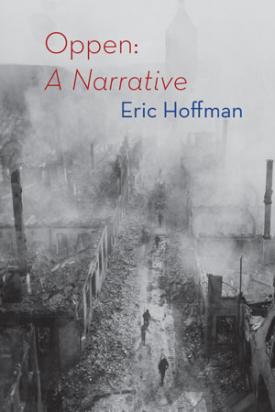
Jeremy Hooker Art of Seeing
— Essays on Poetry, Landscape Painting & Photography
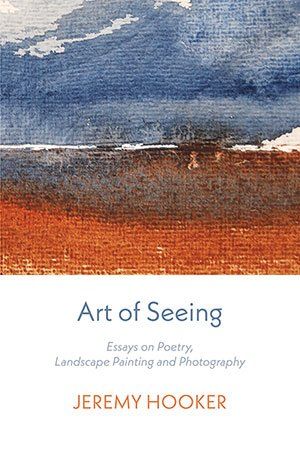
Gerard Manley Hopkins The Wreck of the Deutschland
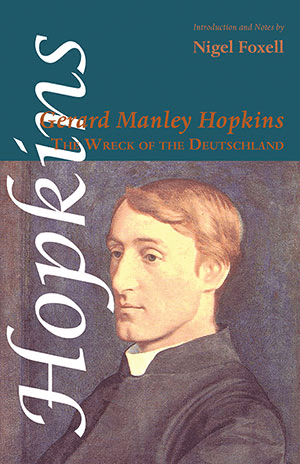
Norman Jope, Paul Scott Derrick & Catherine E. Byfield (eds.) The Companion to Richard Berengarten
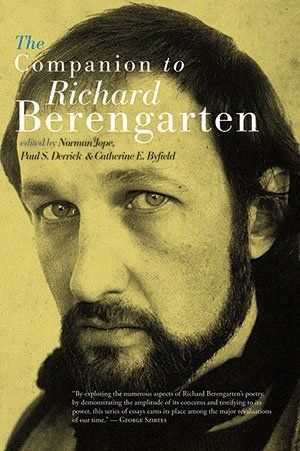
Kenneth Keating (ed.)
A Line of Tiny Zeros in the Fabric - Essays on the Poetry of Maurice Scully
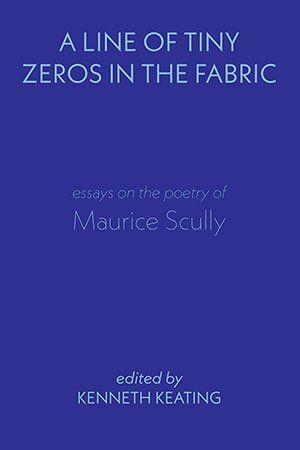
David Kennedy (ed.) Necessary Steps
Published 2007. Paperback, 192pp, 9x6ins £14.95 / $23
ISBN 9781905700639
A collection of essays, several of which previously appeared in David Kennnedy’s magazine The Paper , revolving around poetry, walking, elegy and the spiritual. Contributors are Andrea Brady, Ian Davidson & Zoë Skoulding, John Hall, Sarah Law, Jennifer Moxley, Stuart Mugridge, Jeremy Noel-Tod, Malcolm Phillips, Peter Riley, Michael Symmons Roberts, Josh Robinson, Jane Routh, Penelope Shuttle, Lawrence Upton and Stephen Vincent.
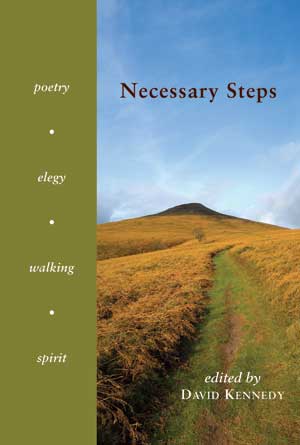
Zbigniew Kotowicz Fernando Pessoa —
Voices of a Nomadic Soul
Published 2008. Paperback, 116pp, 8.5x5.5ins £12.95 / $20
ISBN 978-1-905700-31-8 [Download a PDF sampler from this book here .]
With drawings and a cover painting by Aldous Eveleigh.
First published by The Menard Press in 1996, Zbigniew Kotowicz's long essay on Pessoa was the first book-length assessment of Pessoa's work in English. Twelve years later it remains an important work, and will help Anglophone readers come to grips with the astonishing work of this archetypal modernist master.
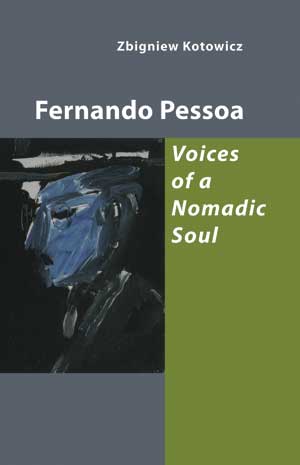
D.H. Lawrence Studies in Classic American Literature
Shearsman Classics No. 13. Introduced by Jon Thompson.
Published 2011. Paperback, 196pp, 9x6ins, £14.95 / $23
ISBN 9781848611580 [Download a sample PDF from this book here .]
Studies in Classic American Literature [...] is at once a work of cultural criticism, a study and critique of American myths, a meditation on the relationship between the Old World and the New, a new theory of the self, a theory of textuality (and a fearless demonstration of a radical, self-styled form of psycho-social criticism), a theory of art, a history of America, a critique of the Enlightenment and one of the greatest covert autobiographies in world literature (all the writers in the book represent either versions of Lawrence's self or versions of himself he felt he had to liberate). And, of course, it is a bravura interpretation of "classic" American texts, one of the most innovative and penetrating critical performances of modern times. —from Jon Thompson's Introduction.
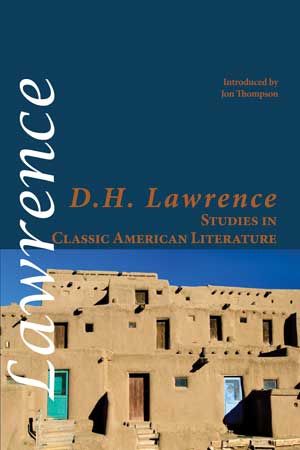
Tony Lopez & Anthony Caleshu (eds.) Poetry and Public Language
Published 2007. Paperback, 320pp, 9x6ins £17.95 / $28.
ISBN 9781905700646 [Download a sample PDF from this book here .]
A collection of essays and papers delivered at the University of Plymouth’s eponymous conference in April 2007. Contributors include Lyn Hejinian, Barrett Watten, Allen Fisher, Richard Kerridge, Peter Middleton, Robert Hampson, William Rowe, Andrea Brady, Robert Sheppard, Ian Davidson, Carrie Etter, Scott Thurston, Ian Davidson, Philip Terry and several others.
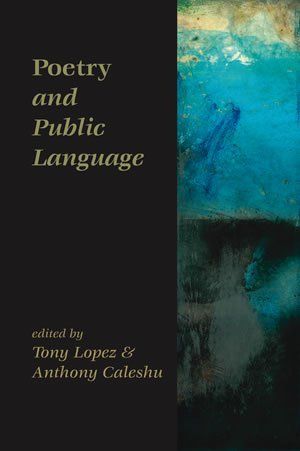
Rupert M. Loydell Encouraging Signs
Published 2013. Paperback, 212pp, 9x6ins, £14.95 / $23
ISBN 9781848612990 [Download a sample PDF from this book here .]
Since Rupert Loydell first began publishing his adventurous and wide-ranging Stride magazine, not to mention his influential and critically lauded Stride Publications list, he has endlessly discussed poetry, art and music. These ongoing dialogues, whether by letter and email, in pubs, record shops or university seminar rooms, have always informed his own practice and cultural understanding. A selection of these, first published in a number of magazines and journals, are now gathered here together in chronological order. From a field in Cheshire to a quick response internet interview, via Manchester Exchange Theatre and a Fulham basement, these engaging and lively pieces chart a zigzag course through composition, poetics, publishing, inspiration and experiment. Encouraging Signs is a poetics journal and a critical work, with a fascinating element of autobiography.
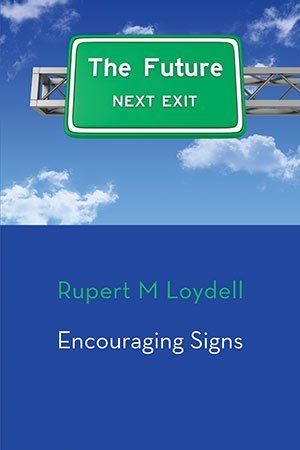
John Matthias Who Was Cousin Alice? and Other Questions
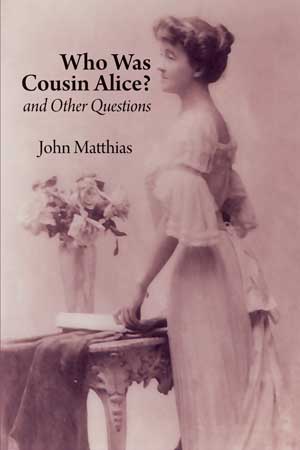
John Matthias At Large
Published 2016. Paperback, 396pp, 9 x 6ins, £16.95 / $27
ISBN 9781848615175 [Download a sample PDF from this book here .]
At Large is a collection of essys by poet, John Matthias, covering matters both personal and literary in the same manner as his Who Was Cousin Alice? (2011) It also includes an interview by Joe Doerr with Matthias and another by Matthias with Larry Siems, concerning the latter's work with American PEN.
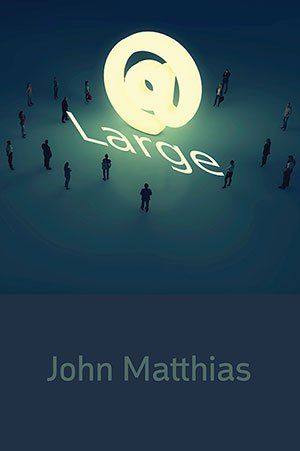
Christopher Middleton Palavers & A Nocturnal Journal
Published 2004. Paperback, 151pp, 9x6ins. £12.95 / $20.
ISBN 9780907562511 [Download a sample PDF from this book here .]
Christopher Middleton was one of the finest British poets of the post-War era and this volume presents the voice of the man behind a remarkable body of work, firstly talking to poet Marius Kociejowski, and then talking to himself – 18 months' worth of journal entries from the late 1990s, in which he muses on matters poetic, social, political. The book also includes an essay-memoir by Marius Kociejowski that traces the growth of his fascination with Middleton's art.
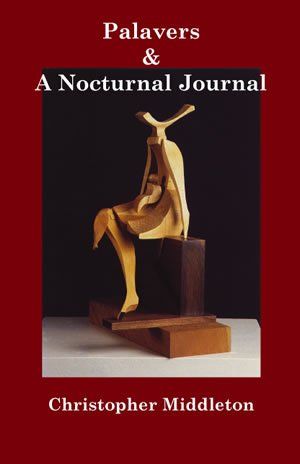
Geraldine Monk (ed.) CUSP — Recollections of Poetry in Transition
Published 2012. Paperback, 244pp, 9x6ins, £14.95 / $23
ISBN 9781848612501 [Download a sample PDF from this book here .]
"This book is probably best described as a collective autobiography. With few exceptions the contributing poets write about their origins and influences and how they became involved in poetry. My main objective is to present the spirit of a brief era which, in retrospect, was exceptional in its momentum towards the democratisation and dissemination of poetry. The era or "cusp" I'm concentrating on is between World War II and the advent of the World Wide Web. Already extraordinary in its social, political and cultural upheaval, it seems even more heightened when set against the technological transformation which has since been unleashed."—from Geraldine Monk's introduction to this volume
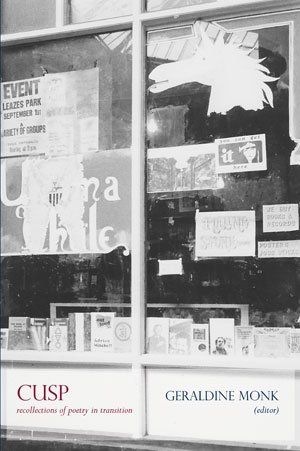
John Muckle Little White Bull — British Fiction in the 50s and 60s
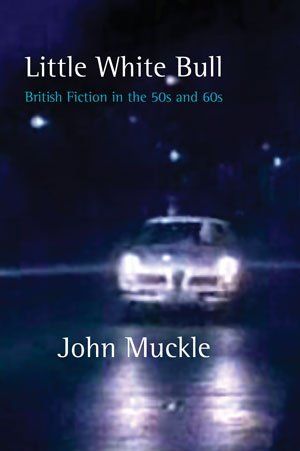
Paschalis Nikolaou The Return of Pytheas — Scenes from British and Greek Poetry in Dialogue
Published 2017. Paperback, 159pp, 9 x 6ins, £14.95 / $23
ISBN 9781848615670 [Download a PDF of the Introduction to this book here .]
The Return of Pytheas is a study of poetry and poems through and across two language traditions – Greek and English. While the main focus is recent and contemporary, exchanges reach back as far as Aeschylus and the Iliad. The book thus investigates Christopher Logue’s extraordinary engagement with Homer, as well as the more sporadic and varied influences of Greek landscape and culture since the 1960s on English poets such as Richard Berengarten, Sebastian Barker, Josephine Balmer and Kelvin Corcoran. The special history of Cavafy in Britain is also explored, starting with E. M. Forster, and continuing through the poetry of John Ash, Evan Jones, Don Paterson and others. As scenes from Ted Hughes’s revisiting of ancient drama are echoed in Alice Oswald’s recent writing, manifold continuations of translation and versioning are shown to be essential parts of poets’ lives and work.
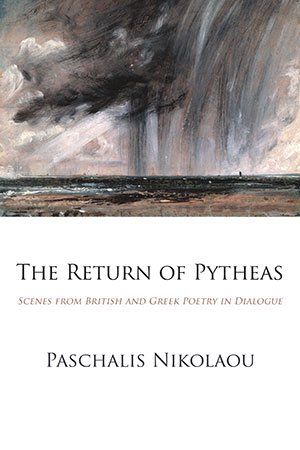
Paschalis Nikolaou & John Z. Dillon (eds.) Richard Berengarten —
A Portrait in Inter-Views
Published 2017. Paperback, 204pp, 9 x 6ins, £14.95 / $23
ISBN 9781848615120 [Download a sample PDF from this book here .]
Spanning a period of fifteen years, these five ‘Inter-views’ with Richard Berengarten explore the many facets of his writings. Hospitably and expansively, they yield insights into the work of a poet of our time, his methods, motives, and patterns of thought.
Based in dialogue, an interview is always a collaborative venture. It discovers difference and clarifies commonalities between writer and reader. By working closely together in composing, editing and revisiting transcripts for each interview, Richard Berengarten and his five interlocutors reveal the potential of the literary interview itself, as they articulate and test its reticent boundaries.
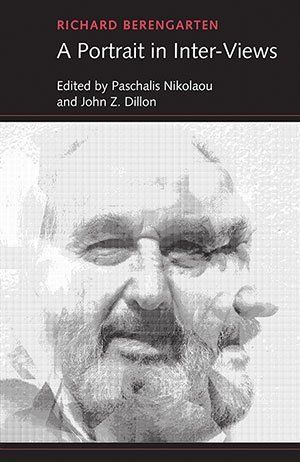
Paschalis Nikolaou & Richard J. Smith Under the Sign of the I Ching
Published 2023. Paperback, 370pp, 9x6ins, £22.95 / $35
ISBN 9781848618497 [Download a PDF of the Introduction to this book here.]
In this book, eighteen authors from a dozen countries interpret Richard Berengarten’s Changing (2016), a large-scale poetic mosaic written in honour of the I Ching , the first of the Confucian classics of ancient China.
Niamh O'Mahony Essays on the Poetry of Trevor Joyce
Published 2015. Paperback, 242pp, 9 x 6ins, £16.95 / $25
ISBN 9781848613393 [Download a PDF of the introduction to this book here .]
Essays on the Poetry of Trevor Joyce is the first collection of critical responses to an Irish poet whose writing consistently challenges received ideas of Irish poetry.
The contributions that make up this collection span Joyce's writing career, from Sole Glum Trek (1967) to Rome's Wreck (2014), and are written by literary critics, poets, and publishers. These essays illuminate Joyce's poetry, aligning careful reading with insightful analysis to reveal Joyce as one of Ireland's most innovative and creative living poets.
Contributors to this volume include: Lucy Collins, Eric Falci, Fergal Gaynor, John Goodby, Fanny Howe, David Lloyd, Peter Manson, Niamh O'Mahony, Marthine Satris, Geoffrey Squires, Keith Tuma and Jeffrey Twitchell Waas.
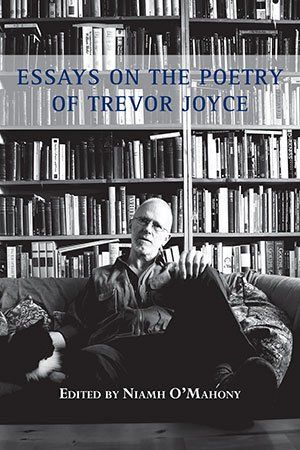
Tom Phillips (ed.) Peter Robinson: A Portrait of His Work
This volume contains essays by Ian Brinton, Peter Carpenter, Tony Crowley, Martin Dodsworth, Andrew Houwen, Miki Iwata, James Peake, Piers Pennington, Tom Phillips, Adam Piette, Elaine Randell, Anna Saroldi, Matthew Sperling, and Alison Stone, which covers all aspects of Peter Robinson's literary output.
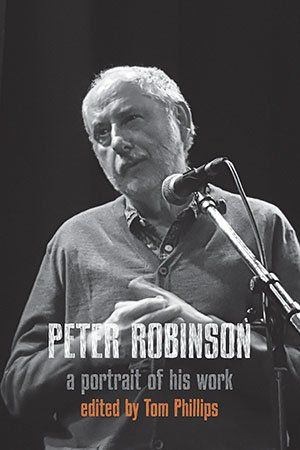
Jeremy Reed I Heard It Through the Grapevine: Asa Benveniste and Trigram Press
Published 2016. Paperback, 132p, 9 x 6ins, £12.95 / $20
ISBN 9781848614635 [Download a sample PDF from this book here .]
Asa Benveniste (1925-1990) who founded the legendary Trigram Press in London in 1965, ostensibly to publish Anglo-American cutting-edge poetry, was not only a self-taught, one-off maverick genius as a printer, typographer and book-designer, but also a superbly innovative language poet, whose own poetry tended to be obscured by his merits as a publisher. Throughout its duration, 1965-1978, the Trigram list epitomised ultimate hipster cool, as a leading independent. Jeremy Reed's deeply personal tribute to Benveniste as his enduring poetic avatar, and the encourager and publisher of his early poetry informs a book that is both an appraising memoir and a significant evaluation of Trigram Press. The book also includes a reprint of Benveniste's collection Edge (1975), as well as miscellaneous writings of his retrieved from small press publications.
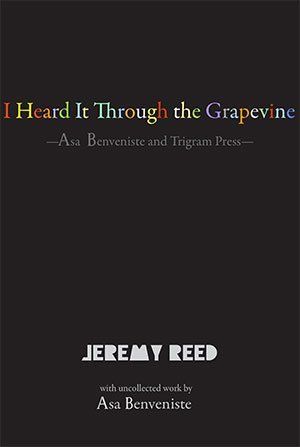
Andrew Roberts (ed.) Strangeness and Power: Essays on the Poetry of Geoffrey Hill
Published 2020. Paperback, 292pp, 9 x 6ins, £25 / $39.95
ISBN 9781848616004 [Download a sample PDF from this book here.]
Geoffrey Hill (1932–2016) was, by common consent, one of the finest poets in the English language in the second half of the 20th century, and the first decade of the 21st. This volume brings together essays comparing Hill’s work to that of Eliot and David Jones, J.H. Prynne, Denise Riley as well as covering specific works — in particular the later books, such as Speech! Speech! and Odi Barbare — and more general topics such as the relationship of his work to philosophy or 18th century literature.
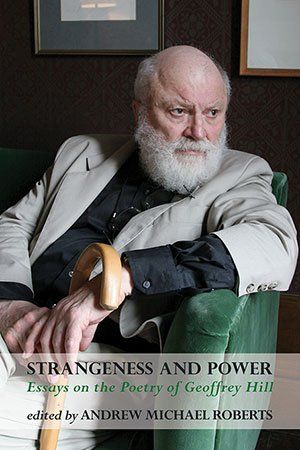
Peter Robinson Talk about Poetry — Conversations on the Art
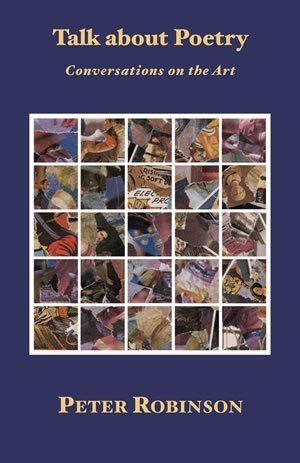
Peter Robinson (ed.) An Unofficial Roy Fisher
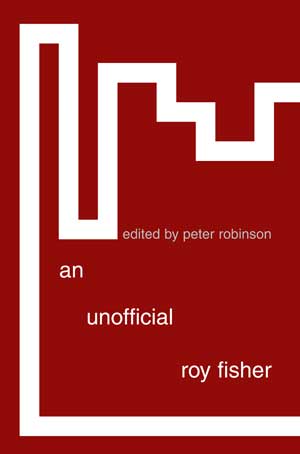
Peter Robinson (ed.) Bernard Spencer —
Essays on His Poetry and Life
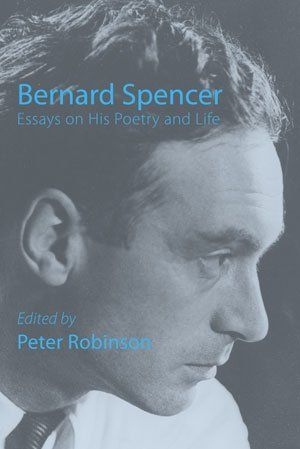
Peter Robinson The Personal Art — On Poetry and Poets
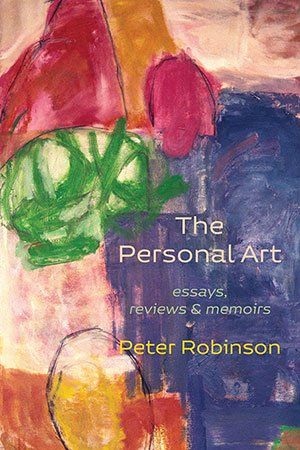
Robert Sheppard The Necessity of Poetics
Published 2024. Paperback, 216pp, 9 x 6ins, £16.95 / $25
ISBN 9781848619524
The Necessity of Poetics
marks the moves Robert Sheppard has made as a poet-critic around the notion of poetics in general, and the poetics of linguistically innovative poetry in particular, and his own poetics as an outcome of those. It traces those moves, but offers them to fellow poets, critics, and even to literary historians. It incites and ignites and invites readers to identify poetics, to read poetics (as poetics, not as an impoverished literary criticism), to share poetics and, where appropriate, for readers who are also writers, to create poetics of their own.
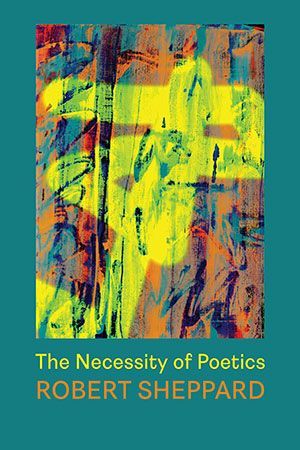
Robert Sheppard When Bad Times Made for Good Poetry — episodes in the history of the poetics of innovation
episodes in the history of the poetics of innovation
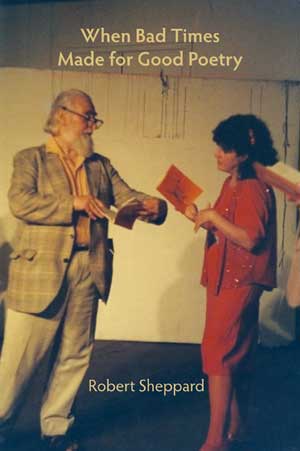
Jon Thompson After Paradise — Essays on the Fate of American Writing
Published 2009. Paperback, 136pp, 9x6ins, £12.95 / $20
ISBN 9781848610415 [Download a sample PDF from this book here .]
After Paradise: Essays on the Fate of American Writing lays bare the richness of classic American texts and their fraught relationship with what Jon Thompson sees as a culture of violence and war. Focusing on William Bradford's Of Plymouth Plantation , Herman Melville's Bartleby the Scrivener , Walt Whitman's Specimen Days, Emily Dickinson's Letters and Michael Herr's Dispatches , After Paradise offers a series of moving, interconnected reflections upon what Thompson calls "the fate of American writing." Part cultural reflection, part lyrical criticism, part idiosyncratic literary history, After Paradise attempts to restore a sense of the original strangeness of American literature and culture by pushing the boundaries of the essay form.
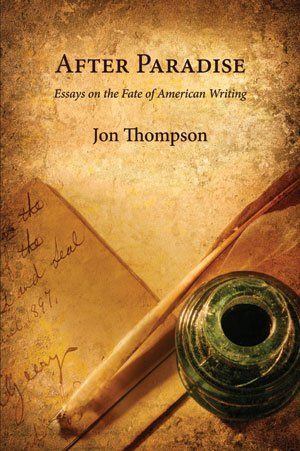
Scott Thurston Talking Poetics
Published 2011. Paperback, 160pp, 9x6ins, £14.95 / $23
ISBN 9781848611917. [Download a PDF sampler from this book here .]
This is a book of full-length interviews with the poets Karen Mac Cormack, Jennifer Moxley, Caroline Bergvall and Andrea Brady carried out between 2008 and 2009 in the UK and USA by Scott Thurston. During the course of these conversations, the poets explore a huge range of topics likely to interest anyone concerned with the state of innovative poetry today. Each interview considers the complete oeuvre of each writer and includes detailed engagements with selected texts as well as unfolding themes such as the role of innovation, the politics of poetry and reflections on lyric and autobiography. Each interview is footnoted and there is an extensive bibliography.
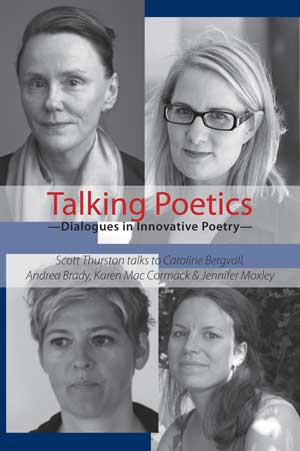
Gael Turnbull More Words — Gael Turnbull on Poets and Poetry
Edited by Jill Turnbull & Hamish Whyte
Published 2012. Paperback, 204pp, 9x6ins, £14.95 / $23
ISBN 9781848610934 [Download a PDF sampler from this book here .]
This volume brings together a number of hard-to-find reviews, essays, memoirs and journal pieces by Gael Turnbull, a central figure in the interaction between American and British poetry in the 1950s, 60s and 70s, and also publisher of the excellent small press, Migrant. Shearsman published his Collected Poems, There are words … in 2006, and this companion volume fills out the picture of an influential figure in British letters, with a number of pieces on poets such as Basil Bunting and Roy Fisher, as well as nods in the direction of Olson and Creeley from the other side of the Atlantic. The book is introduced by the poet's widow, Jill Turnbull, who has also made the final selection of pieces to be included, in consultation with Hamish Whyte, Turnbull's long-time publisher in Edinburgh.
